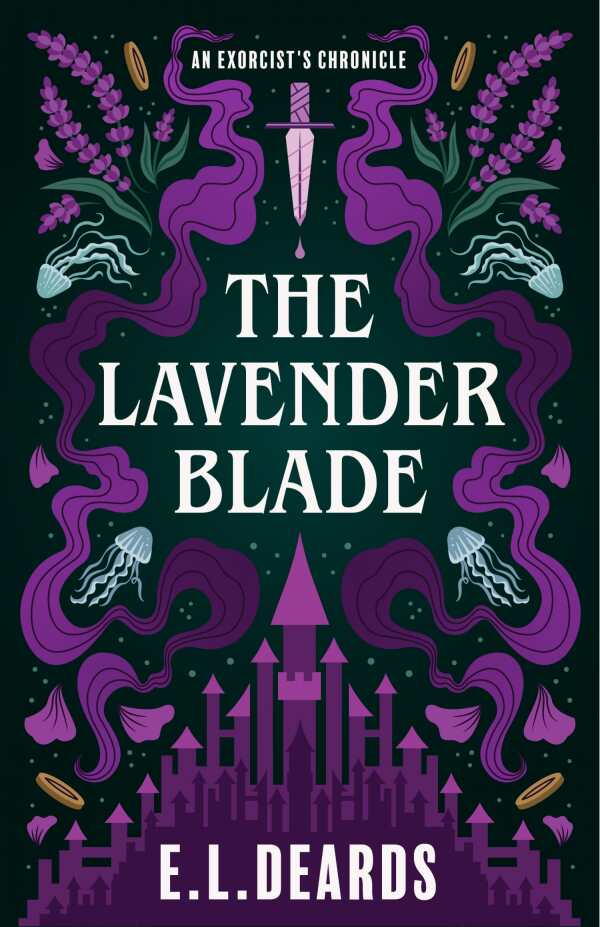The Lavender Blade
The Lavender Blade is a powerful fantasy novel about pursuing love despite all obstacles.
E. L. Deards’s appealing fantasy novel The Lavender Blade is about exorcising demons and queer identity.
Colton is an exorcist and charlatan working in the Iron District. Lucian is an Ivory lordling fallen from grace: He was in the running for prime minister until his father found him with another man. Lucian plucks Colton out of his situation and proposes they enter into business together. With debts to pay, Colton agrees. What he did not see coming was falling for Lucian and a bona fide demonic possession.
Powerful motifs of light and dark run throughout the book, whose settings are well developed. The Iron District is painted as dirty and poor, filled with rough-and-tumble blue-collar characters. In comparison, the Ivory District is pristine and rich, described as even having a working aqueduct. Ivory is also where the Holy Order, a religious society, reigns supreme alongside a prime minister, and where being gay is far more frowned upon.
Colton and Lucian are developed as strong representatives of their districts; through their mannerisms, the districts’ distinct motifs are further understood. Lucian holds himself upright, quite literally. He speaks poshly and with flourish. Meanwhile, Colton’s speech is that of a layperson. While he would not call himself an honest man, his work is honest work.
Colton’s confession of love for Lucian comes early in the book, within a matter of weeks and after a handful of exorcism jobs. Upon nearly losing Lucian to possession, Colton realizes that he is in love with him. Whether Lucian returns his feelings is vague until later in the novel, though even then, the depth of that care remains uncertain. Indeed, with the story being told through Colton’s perspective, Lucian’s feelings are a matter of guesswork to a certain degree. Still, revelations hinge on their connection: Had Colton not been quick to know and trust Lucian, he would not have been able to discern when Lucian was in control of his own body and when the demon was.
The book’s themes of queer identity are handled well. People endure parents who accept them or who do not; some have to suppress their true selves. Ultimately, the decision to choose a partner in the name of love versus covering up one’s identity leads the story toward triumph.
Two men from opposite backgrounds find each other and recognize that their rocky path to love is worth taking in The Lavender Blade, a romantic fantasy novel in which an exorcist faces the truth of his profession.
Reviewed by
Rachel Telljohn
Disclosure: This article is not an endorsement, but a review. The publisher of this book provided free copies of the book and paid a small fee to have their book reviewed by a professional reviewer. Foreword Reviews and Clarion Reviews make no guarantee that the publisher will receive a positive review. Foreword Magazine, Inc. is disclosing this in accordance with the Federal Trade Commission’s 16 CFR, Part 255.

